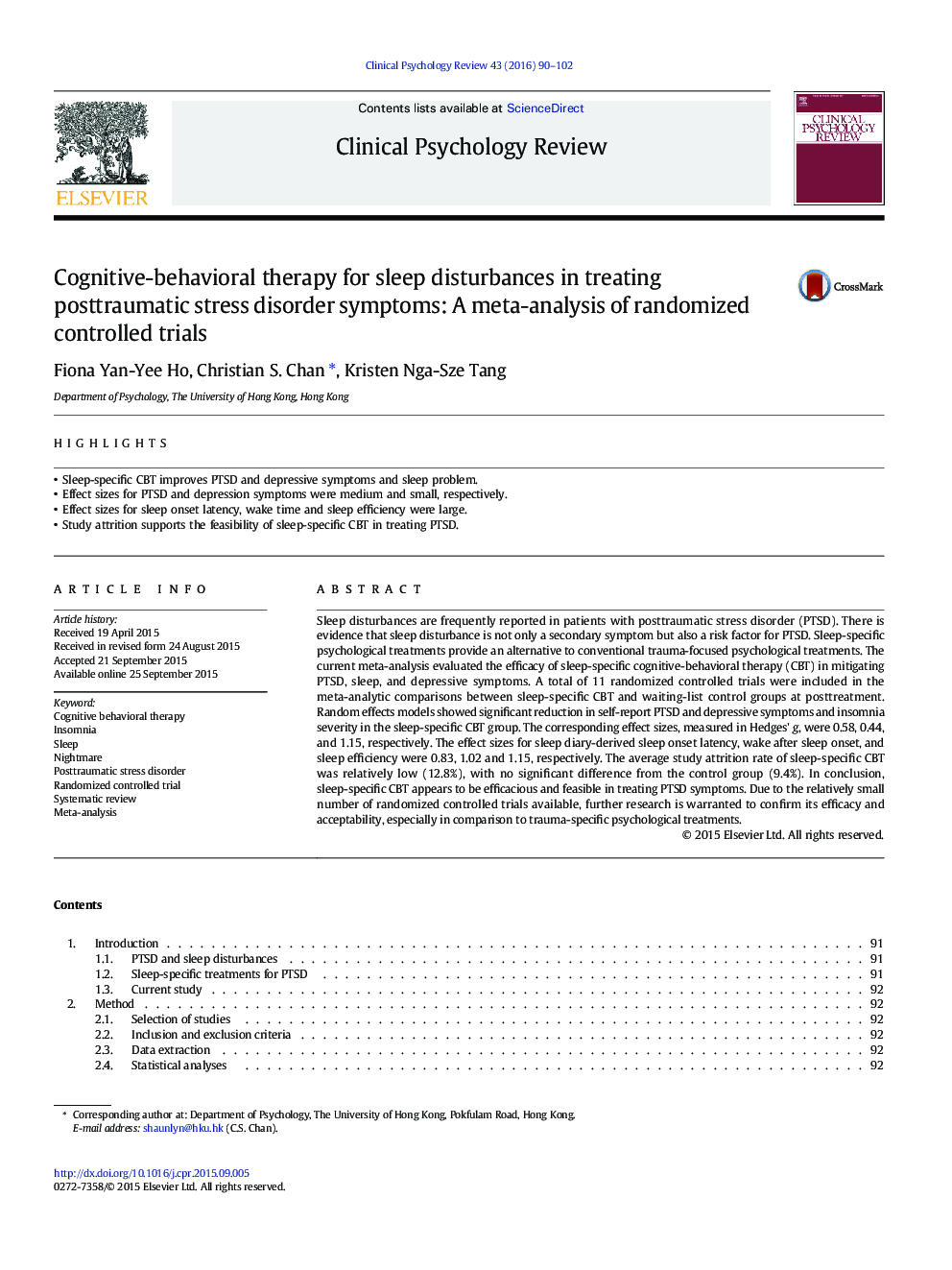| کد مقاله | کد نشریه | سال انتشار | مقاله انگلیسی | نسخه تمام متن |
|---|---|---|---|---|
| 903586 | 1472848 | 2016 | 13 صفحه PDF | دانلود رایگان |
• Sleep-specific CBT improves PTSD and depressive symptoms and sleep problem.
• Effect sizes for PTSD and depression symptoms were medium and small, respectively.
• Effect sizes for sleep onset latency, wake time and sleep efficiency were large.
• Study attrition supports the feasibility of sleep-specific CBT in treating PTSD.
Sleep disturbances are frequently reported in patients with posttraumatic stress disorder (PTSD). There is evidence that sleep disturbance is not only a secondary symptom but also a risk factor for PTSD. Sleep-specific psychological treatments provide an alternative to conventional trauma-focused psychological treatments. The current meta-analysis evaluated the efficacy of sleep-specific cognitive-behavioral therapy (CBT) in mitigating PTSD, sleep, and depressive symptoms. A total of 11 randomized controlled trials were included in the meta-analytic comparisons between sleep-specific CBT and waiting-list control groups at posttreatment. Random effects models showed significant reduction in self-report PTSD and depressive symptoms and insomnia severity in the sleep-specific CBT group. The corresponding effect sizes, measured in Hedges' g, were 0.58, 0.44, and 1.15, respectively. The effect sizes for sleep diary-derived sleep onset latency, wake after sleep onset, and sleep efficiency were 0.83, 1.02 and 1.15, respectively. The average study attrition rate of sleep-specific CBT was relatively low (12.8%), with no significant difference from the control group (9.4%). In conclusion, sleep-specific CBT appears to be efficacious and feasible in treating PTSD symptoms. Due to the relatively small number of randomized controlled trials available, further research is warranted to confirm its efficacy and acceptability, especially in comparison to trauma-specific psychological treatments.
Journal: Clinical Psychology Review - Volume 43, February 2016, Pages 90–102
